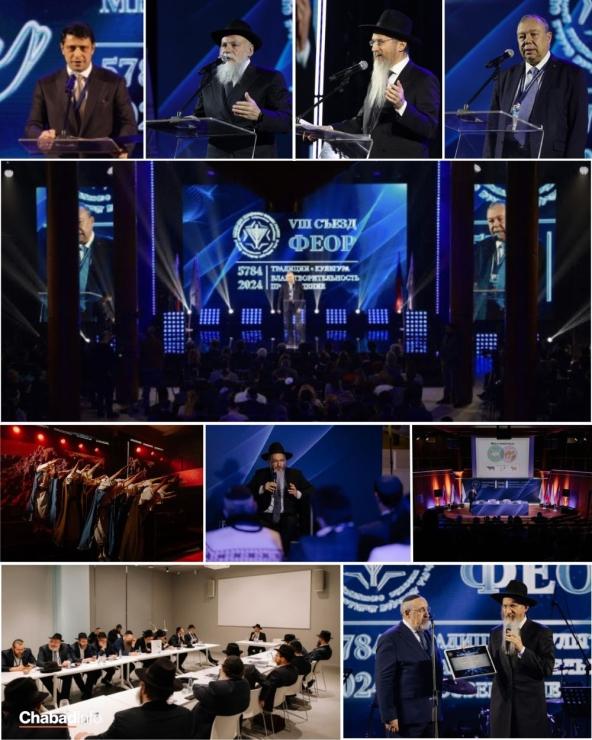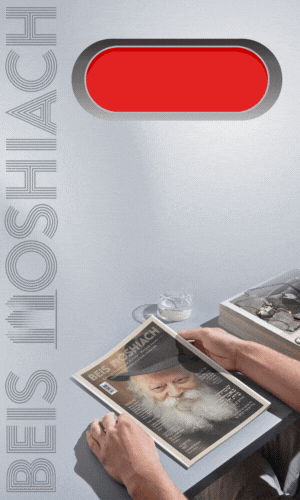Bullets, Anti-Semitism and Prison
Chaim Silber, 26, an Oleh Hadash, and former lone soldier, was exonerated one-year-ago after spending a week in Russian prison last summer on charges of weapons trafficking after he was caught with several stray Israeli bullets in his suitcase leftover from his service in the IDF • Full Story
Chaim Silber, 26, an Oleh Hadash, and former lone soldier, was exonerated one-year-ago after spending a week in Russian prison last summer on charges of weapons trafficking after he was caught with several stray Israeli bullets in his suitcase leftover from his service in the IDF.
Upon arriving in the airport in Moscow on a scheduled layover on his way to visit his family in New York, Silber was called to the security offices and taken into custody where he faced intensive interrogations over the course of several hours.
After coming to the understanding that he did not speak a word of Russian, Silber was granted a translator who, coincidentally, was an ex-lone soldier from a counter-terrorism unit in the IDF who had returned to Russia upon completing his service to become a police officer.
The translator, already privy to the ins- and- outs of the Russian prison system, discreetly asked Silber to hand him his wallet. The translator removed Silber’s military credentials, ensuring he would not be brought under charges of spying for the State of Israel.
Facing a potential four year prison sentence and having received no assistance from the US or Israeli embassy, Silber was lead out of the international airport onto Russian soil and taken, bound and shackled, to a cage truck flanked by armed guards for his trip to the local prison. Before he was driven away, Silber’s translator slipped him a carton of cigarettes.
“I told him I don’t smoke and he said, ‘Oh don’t worry – take them. You will need them as currency in prison and it will keep you alive longer. If anyone seems hostile enough to kill you, give them a cigarette. It will protect you,'” explained Silber.
The translator also recommended, that contrary to his natural instincts, Silber should continue wearing his kippa while in prison.
“He told me that the prisoners would know I was Jewish anyway. If I didn’t wear it they would sense I was hiding something. If you keep the kippa on it will be a shock for them. They will think that if you are crazy enough to wear your kippa, maybe you are someone we shouldn’t mess with,” he explained.
After a two hour ride, Silber was taken to a vault-like, sparsely decorated prison cell that contained two bunk-beds, a metal bench and side table with a small hole in the ground in place of a toilet.
“My bunk mate, a massive guy covered in tattoos who, as it turns out, was a Turkish drug dealer, jumped down off the top bunk, looked me in the eye and said, ‘Welcome to hell my friend.’ It was then that I understood just how much danger I was in and that I was living a nightmare,” he explained.
After a harrowing day-and-a-half in prison, Silber was transported to the court house for his arraignment. Upon arriving at the court house, he was taken to the fortified basement holding cells to await his appointment to face a judge.
Silber was lead down a long, dark hallway filled with steel doors with small, square holes cut into them.
“As I walked down the hall, all I saw were eyes staring out at me through the peepholes. The prisoners started chanting “Yivri, Yivri, Yivri, (Jew, Jew, Jew),” recalled Silber.
“The guard opened the door to one of the cells. Inside were six huge men, one with a tattoo of a swastika on his neck. I looked at the guard just as he was leaving the cell and I said to him in English, ‘My blood is on your hands.'”
The guard appeared to have understood the situation on his own despite the language difference, as he looked back and forth between Silber and the other prisoners. He shouted at the men to leave the room and as they filed past, muttering anti-Semitic slurs under their breath, each one took a moment to spit at or kick Silber as they exited into the hallway.
The prisoners were transferred to a different cell and Silber was left alone to await the moment that would determine his fate.
Silber was forced into a large cage in the center of the court room used to hold prisoners considered to be a danger to the population.
Silber’s lawyer, a member of the Russian Jewish community, defended his actions claiming Silber had unknowingly transported the bullets and that he had no intention of becoming an arms dealer.
When the judge asked how she could be expected to release a man onto Russian soil who has no connections to the country, a Jewish man approached the bench with a signed affidavit stating that he knew Silber personally and was willing to give him a place to stay and a job for the extent of his stay in Russia.
“He walked over to me, put his hand on my arm and said ‘Shalom Alecha’ (peace unto you) with a smile. I had never met this man in my life,” said Silber.
“I found out I would be released on a very costly bail but until my parents could get the money together I would have to stay in prison.”
“I received two days’ worth of food from the chief rabbi of the prisons in Russia but I was there for about a week so I had to ration it out. I spent that time starving in a semi-hallucinatory state,“ he explained.
Just before Shabbat, the prison guards granted Silber access to his suitcases and he was allowed to take the books he had brought with him back to his cell. “One of the books I had was a book on faith. It pulled me through the darkest times,” he said.
“Ironically, the other book I had was a gift from a friend as reading material for my flight about the Acre prison break. I couldn’t stop laughing,” he recalled.
Silber was released from prison and brought directly to the Jewish quarter where the community gave him a place to stay in a local Yeshiva.
“Jews who I had never met before would come up to me on the street and ask me if there was anything I needed. My translator kept asking me if I had enough food and insisted on showing me around so I would leave with a better picture of Russia than the impression the prison had left on me.”
Following several more days of an intensive investigation, Silber was given permission to leave the country on condition that he would return at a moment’s notice for the conclusion of his trial. Silber continued on his journey to the United States while his lawyer continued to fight to clear his name.
Two days before Rosh Hashana, Silber was called back to Russia. His lawyer had discovered that during his time under interrogation at the airport, the Russian authorities broke several laws regarding the detainment of prisoners.
“I came back to Russia and within a day, miraculously, and with the help of my incredible lawyer, my record was expunged and I came back to Israel right before the Jewish New year, a year which I have dubbed the year of freedom,” said Silber.
Silber is celebrating the one-year anniversary of his prison stay with a group of close friends and a New Year’s resolution to pay it forward by finding ways to help others in need.
“I am so grateful to my parents, my brother, my translator, my lawyer and the entire Russian Jewish community, specifically the two rabbis who took me under their wing, for the unconditional help they gave me to ensure I would see the light of day again. I want to find a way to do the same for others,” he said.
124
Join ChabadInfo's News Roundup and alerts for the HOTTEST Chabad news and updates!










































